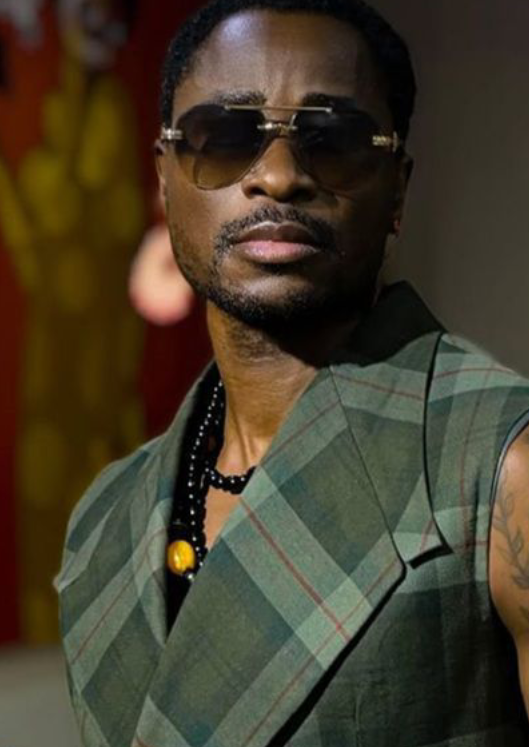
“Takeaway Wahala Don Too Much”: Influencer Enioluwa Sparks Debate as He Vows to Bring His Own Food Flask to Restaurants

In a move that has triggered widespread conversation across social media platforms, popular Nigerian influencer Enioluwa Adeoluwa has made a declaration that is both bold and surprisingly relatable in these economically trying times. With a tweet that has since gone viral, Enioluwa voiced his frustration over the increasing cost of takeaway packaging in restaurants, stating that he’s now considering a DIY solution: bringing his own food flask along to dine-outs.
The tweet read, “Very soon, I'll start taking my own food flask to restaurants. Instead of paying ₦3,000 for takeaway, they can just help me pack my food straight into my flask.” A seemingly simple suggestion, yet one that has sent a ripple across the internet, with thousands weighing in on the rising costs of living, the absurdity of extra charges for packaging, and the growing need for Nigerians to seek smarter, more cost-effective choices in their daily lives.
While the original tweet may have had humorous undertones, the sentiment behind it is anything but lighthearted. In a country where inflation continues to eat deep into pockets, and where the average citizen now has to calculate basic expenses down to the last naira, the idea of paying an extra ₦3,000 simply to have your food packaged has moved from being an inconvenience to what many now consider outright exploitation.
“₦3,000 for takeaway? For what? Is the container gold-plated?” one Twitter user responded under Enioluwa’s post, echoing the outrage of thousands of others. Another user quipped, “Before nko, I carry my food flask enter office every day. Restaurant nko? Them go collect am sharply. Make everybody wise up abeg.”
But beyond the jokes and hot takes, Enioluwa’s post has unearthed a deeper frustration with the hospitality and food industries’ pricing models. In many urban centers like Lagos and Abuja, customers are beginning to notice a pattern: after ordering a meal, they're confronted with steep and often shocking takeaway charges, sometimes amounting to half the cost of the meal itself. For context, a simple bowl of pasta that costs ₦6,000 might come with a ₦3,000 takeaway fee, making the total bill nearly ₦10,000. It is a practice that seems to go unchecked and unregulated, and one that disproportionately affects young Nigerians—especially students and working-class individuals who often rely on takeout as a convenient meal solution.
Restaurants argue that the cost of packaging has increased due to inflation and the rise in importation costs for materials like plastic containers, foil packs, and branded paper bags. They also claim that in an economy with skyrocketing operational costs—diesel prices, staff salaries, security, and rent—they are left with little choice but to pass on the expenses to customers. However, customers like Enioluwa are no longer buying that explanation, and are beginning to resist, not with protests or petitions, but with action and innovation—like carrying reusable containers.
“I’m serious o,” Enioluwa later tweeted in a follow-up post, “We carry water bottles, reusable bags, tumblers. Why can’t we normalize taking our food flasks too? Especially if it’ll save me money and help the environment.”
Indeed, what started off as a personal frustration may be the beginning of a bigger movement—one that could redefine restaurant culture in Nigeria. Advocates for sustainability and eco-conscious practices have long been encouraging Nigerians to move away from single-use plastics and disposable containers. Enioluwa’s idea could give that advocacy a much-needed boost, connecting environmental consciousness to a very real, relatable financial issue.
In fact, some eco-friendly Nigerians have already taken to the streets—literally—with their stainless-steel flasks, compact Tupperware bowls, and lunch boxes, proudly walking into restaurants and eateries to pack their meals. Some eateries, especially smaller “buka-style” joints, have always welcomed this practice. But for the mid-range and high-end restaurants, the idea of a customer walking in with a flask has often been frowned upon, or seen as “tacky” or inappropriate.
That perception, however, is now being challenged. If Enioluwa, a well-groomed, polished influencer with a massive Gen Z fanbase, can normalize food flasks, then perhaps the stigma around them will fade. His influence might just encourage more young Nigerians to boldly choose practicality over appearances.
“I no dey shame again,” one follower commented. “If people can carry iPhone and still owe rent, me wey wan save money for food go dey shame because I carry flask? Abeg!”
Interestingly, this incident has also sparked a call for restaurants to review their pricing policies and be more transparent about packaging fees. Some customers shared screenshots of their receipts showing ₦2,500 or ₦3,000 charges simply listed as “takeaway,” with no explanation or breakdown. Others suggested that restaurants provide a “bring your own container” (BYOC) discount to encourage customers to adopt sustainable practices and ease the financial burden.
As the backlash continues, a few restaurant owners have begun responding. One Lagos-based restaurant posted on Instagram, “Dear customers, you are very welcome to bring your own food containers. We support the environment and support your wallet too!” The post was met with applause and tagged repeatedly by social media users who are already on the #FlaskRevolution train.
The situation also highlights just how powerful digital influence can be in shaping consumer behavior. Enioluwa, known for his beauty content, fashion-forward posts, and witty banter, might not have imagined that a casual tweet would birth a movement. But in Nigeria, where the cost of living seems to rise faster than the average salary, any advice that combines style, sense, and savings will always hit home.
As more Nigerians embrace this newfound food flask gospel, it seems we are in for a culture shift. Restaurants may need to adapt quickly or risk losing customers who are tired of paying more for plastic than for food. And for influencers like Enioluwa, who continue to speak on issues beyond beauty and lifestyle, it’s proof that using your platform to challenge everyday injustices—no matter how small they seem—can make a big impact.
So, the next time you see someone walk into a posh Lagos restaurant holding a stainless-steel container, don’t look twice. The era of takeaway-pack rebellion is here. And it was led, in part, by a tweet, a food flask, and a young man who just didn’t want to spend ₦3,000 on a piece of plastic.


